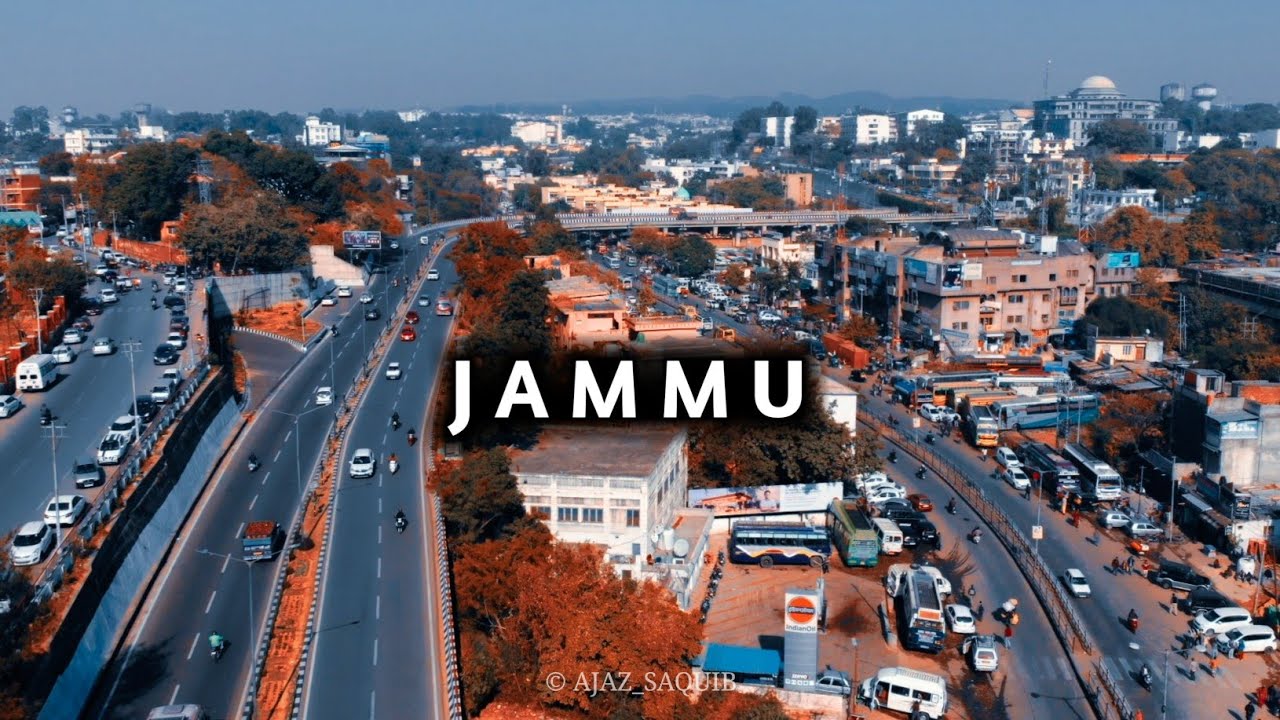
The Waqf (Amendment) Act, 2025, an extensively publicised statute enacted by the Indian Parliament, garners widespread approbation from a preponderance of Indian citizens, encompassing marginalised Muslim constituencies such as the Bohra, Ahmadiyya, and Pasmanda communities. Conversely, elite Muslim factions and opposition political entities have commenced interrogating the juridical legitimacy of this legislative measure.
The Waqf Act in India, which presides over Islamic endowments denominated as “waqf”—properties irrevocably consecrated for religious, pious, or eleemosynary purposes pursuant to Muslim jurisprudence—lacks explicit delineation or genesis within the Indian Constitution per se. Rather, its provenance is inexorably intertwined with a continuum of legislative evolutions, precipitated by colonial and post-independence administrative paradigms. A succinct historical exegesis follows:
The notion of waqf antedates British hegemony, its antecedents discernible in the Delhi Sultanate and Mughal epochs, wherein Muslim potentates instituted such endowments. Formal juridical oversight, however, commenced under British dominion with the promulgation of the Mussalman Wakf Validating Act of 1913, designed to authenticate familial waqfs, succeeded by the Mussalman Wakf Act of 1923, which endeavoured to ameliorate the registration and stewardship of waqf estates.
In the post-independence milieu, the Waqf Act of 1954 was inaugurated by the Indian Parliament under Jawaharlal Nehru’s stewardship, constituting the inaugural comprehensive statute to centralise and regulate waqf administration through the establishment of State Waqf Boards and the Central Waqf Council. This marked a pivotal stride towards institutionalising waqf governance within a secular polity, albeit sans embedment in the original Constitution of 1950, architected by Dr. B.R. Ambedkar.
Subsequent amendments to the 1954 Act (e.g., 1959, 1964, 1984) addressed administrative lacunae, culminating in a substantive revision via the Waqf Act of 1995, enacted during P.V. Narasimha Rao’s tenure. This repealed its predecessor, augmenting Waqf Boards’ prerogatives, encompassing provisions for property surveys and adjudicatory mechanisms via Waqf Tribunals. The 2013 amendment further amplified these faculties, notably enhancing the boards’ authority to arrogate properties, thereby igniting contentious discourse regarding overreach.
The Constitution, under Articles 25 and 26, enshrines religious liberty and the prerogative of religious denominations to administer their affairs, furnishing an implicit foundation for waqf legislation. Nonetheless, waqf-specific enactments operate within the Concurrent List (Entry 28: Charitable endowments), conferring legislative competence upon both central and state authorities. The Waqf (Amendment) Act of 2025, lately ratified, rechristens the 1995 Act as the “Unified Waqf Management, Empowerment, Efficiency and Development Act,” aspiring to enhance transparency and accountability whilst redressing contemporaneous polemics.
In summation, the Waqf Act’s trajectory in India manifests a progression from colonial validation to post-independence consolidation and reform, functioning within the constitutional ambit of religious autonomy rather than as an explicit constitutional precept.
The query of whether the Waqf (Amendment) Act, 2025, contravenes the Constitution of India remains ensconced in juridical and political contention, devoid of a definitive judicial adjudication as of April 9, 2025. This statute, amending the 1995 Act, faces scrutiny in the Supreme Court of India via sundry petitions, yet a conclusive verdict on its constitutionality remains pending. An exposition of arguments, predicated on critics’ and proponents’ perspectives, vis-à-vis cardinal constitutional tenets—Articles 14 (equality), 15 (non-discrimination), 25 (religious freedom), 26 (religious autonomy), alongside secularism and federalism—ensues.
Arguments Suggesting Constitutional Infraction
Critics posit that the Waqf (Amendment) Act, 2025, transgresses manifold constitutional entitlements:
- Article 26 (Freedom to Manage Religious Affairs):
Critique: Article 26 vouchsafes religious denominations the autonomy to govern their affairs, inclusive of administering properties dedicated for religious or charitable ends. The compulsory inclusion of non-Muslims in Waqf Boards and the Central Waqf Council is perceived as an encroachment upon Muslim communal sovereignty. Critics aver that this subverts the religious ethos of waqf institutions, governed under Muslim personal law per the Shariat Application Act, 1937. Furthermore, vesting district collectors with adjudicatory powers over waqf disputes is deemed excessive state intrusion, potentially attenuating communal dominion over sacred endowments.
Rebuttal: Whilst minorities indubitably possess liberty to practise their faith and manage religious affairs, this does not extend to illicit appropriation of non-Muslim lands. Presently, undocumented and illegally seized properties necessitate equitable adjudication, wherein non-Muslim representation on boards is deemed indispensable. Additionally, the heterogeneity within Muslim sects—Sunni, Shia, Deobandi, Hanafi, Barelvi, Bohra, Aga Khani, Pasmanda, Ashrafia—marked by internecine discord, mandates non-Muslim presence to ensure impartiality in waqf property allocation. The state retains authority to regulate religious entities for public weal, provided their quintessential character remains inviolate, a stance buttressed by judicial precedents sanctioning such oversight for secular ends, such as averting maladministration or peculation. - Article 14 (Right to Equality):
Critique: The Act stipulates a prerequisite of five years’ adherence to Islam for waqf creation, a stipulation absent in analogous endowments under the Indian Trusts Act, 1882. Detractors contend this engenders an inequitable disparity sans cogent rationale, potentially infringing equality before the law. The excision of the “waqf by user” clause, recognising properties as waqf via protracted usage, is impugned as disproportionately burdensome to Muslims, necessitating formal documentation not uniformly imposed on other faiths, thus breaching egalitarian tenets.
Rebuttal: A quinquennial criterion forestalls waqf misuse to expropriate land post-proselytisation. Historically, “waqf by user” facilitated the appropriation of benami, governmental, enemy, or forest properties, subsequently legitimised perpetually. Rigorous scrutiny of such holdings is imperative, with illegally encroached estates reverting to original proprietors or the state absent documentation. This temporal requisite is upheld as a rational classification to ascertain authentic religious intent, consonant with Article 14’s allowance for differential treatment tethered to legitimate objectives, such as thwarting specious property claims. - Article 15 (Prohibition of Discrimination):
Critique: The Act is accused of discriminating against Muslims by imposing stringent regulations on waqf properties, unparalleled in endowments of other creeds (e.g., Hindu temples, Christian charities). The absence of commensurate statutes for other communities is cited as prima facie evidence of “hostile discrimination,” clashing with Article 15’s proscription of religious bias.
Rebuttal: No other religious entity has asserted dominion over individual, village, or ancient temple sites, engendering comparable strife for non-Muslims and marginalised Muslim sects. Waqf’s erstwhile parallel judicial apparatus, via autonomous tribunals, facilitated coercive property seizures, detrimentally impacting other religious bodies. Curtailing waqf’s exorbitant powers and elevating the Supreme Court as the paramount arbiter restores parity under Article 15, benefitting minorities such as Christians. - Secular Governance:
Critique: Secularism, an immutable constitutional cornerstone, mandates state neutrality in religious affairs. Critics decry the Act’s provisions—government nomination of Waqf Board members (including non-Muslims) and centralised dominion over waqf properties—as a targeted incursion into Muslim religious domain, contravening secular precepts.
Rebuttal: The state must mitigate sectarian schisms within Muslims, preventing elite sects’ dominance in waqf governance. Non-Muslim inclusion ensures equitable treatment across sects, notably Sunnis. The Act modernises waqf administration via digitisation, audits, and the abolition of arbitrary powers (e.g., Section 40), aligning with secular ethos by safeguarding public interest sans religious targeting. - Federalism Concerns:
Critique: The Act arrogates substantial authority from State Waqf Boards to the central government, encompassing member nominations and dispute oversight, purportedly violating the Constitution’s federal framework, which assigns religious and charitable endowments to states under the State List.
Rebuttal: Waqf legislation, enshrined within the Constitution, obliges protection of marginalised Muslim sects nationwide. The central government rectifies waqf irregularities uniformly, ensuring transparency and justice, particularly for those whose properties waqf has usurped, often leasing them to kin at nominal rates. This falls within Parliament’s purview under the Concurrent List, fortifying national waqf governance sans jurisdictional overreach. - Legal Challenges in the Supreme Court:
Critique: Petitions from entities like the Indian Union Muslim League, Samastha Kerala Jamiathul Ulema, and AAP’s Amanatullah Khan denounce the Act as a “flagrant incursion” into religious autonomy and an “unconstitutional assault” on minority rights, contravening Articles 14, 15, 21, 25, 26, and 29. These pending suits underscore grave constitutional queries.
Rebuttal: Whilst the Supreme Court may adjudicate the Act’s constitutional propriety, it must equally weigh the rights of all Muslim sects and other religious cohorts. No entity supersedes governmental supremacy, nor possesses carte blanche to seize land and subsequently seek judicial redress. The amendment empowers citizens to reclaim properties via the judiciary, compelling waqf to substantiate rightful ownership.
Public Interest Rationale
Proponents underscore encroachments, mismanagement, and meagre revenue (per the 2006 Sachar Committee), asserting the amendments redress these systemic maladies. The state’s prerogative to legislate social reform, even in religious spheres, enjoys robust constitutional precedent.
As of April 9, 2025, the Supreme Court has acquiesced to list challenges against the Act, though no substantive hearings have concluded. Historically, waqf statutes aligning with public welfare (e.g., 1995 Act) have been upheld, yet provisions affronting fundamental rights have been annulled. The Act’s destiny pivots on judicial discernment of its provisions as reasonable regulation or unconstitutional overreach.
The inclusion of non-Muslims, district collectors’ roles, and “waqf by user” abolition constitute the most contentious alterations, with critics prioritising religious autonomy and equality, and advocates championing transparency and efficacy. Absent a judicial edict, deeming the Act unconstitutional is premature. The Supreme Court’s exegesis of Articles 14, 15, 25, and 26 will prove determinative.
The Waqf (Amendment) Act, 2025, poses intricate constitutional conundrums, with cogent arguments on both flanks. Detractors perceive it as an assault on religious liberty and equality; proponents regard it as an indispensable reform within the state’s regulatory ambit. Pending judicial resolution, its constitutionality endures as an unresolved enigma, subject to rigorous legal and public disputation.





After Independence form Britishers, successive Indian Govt’s dominated by pro muslim and communists tried everything to weaken Hindus and strengthen Muslim Community.A bill named as Communal Violence Bill was also introduced by Sonia Congress to grill Hindus but fortunately it couldn’t be passed, otherwise it was enough to make Hindus Slave again.Waqf was given unconstitutional and unlimited powers,which were unchalangeable in the court of law. Waqf could stake calim on any property and owner of the property was on the mercy of Waqf Mafia.Thanks to Modi Govt to bring this Ammendment.Ot was much needed for justice to everyone. Now Govt must Enact law to declare Muslim as non minority comnunty as in India,its 2nd largest population in the world।
Excellent and comprehensive…Anyone who wants to understand Waqf can use this article as reference…nice exhaustive work by the author